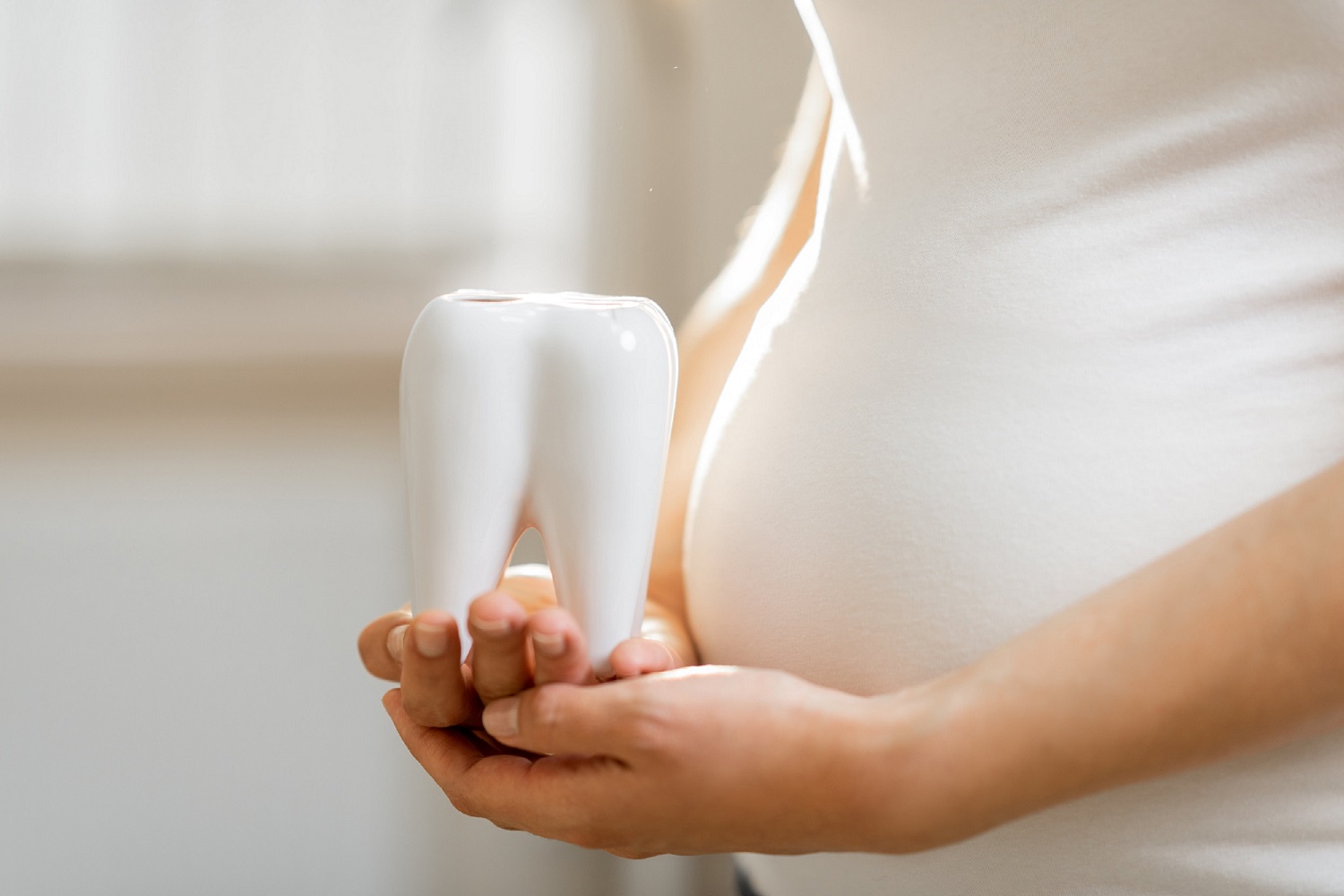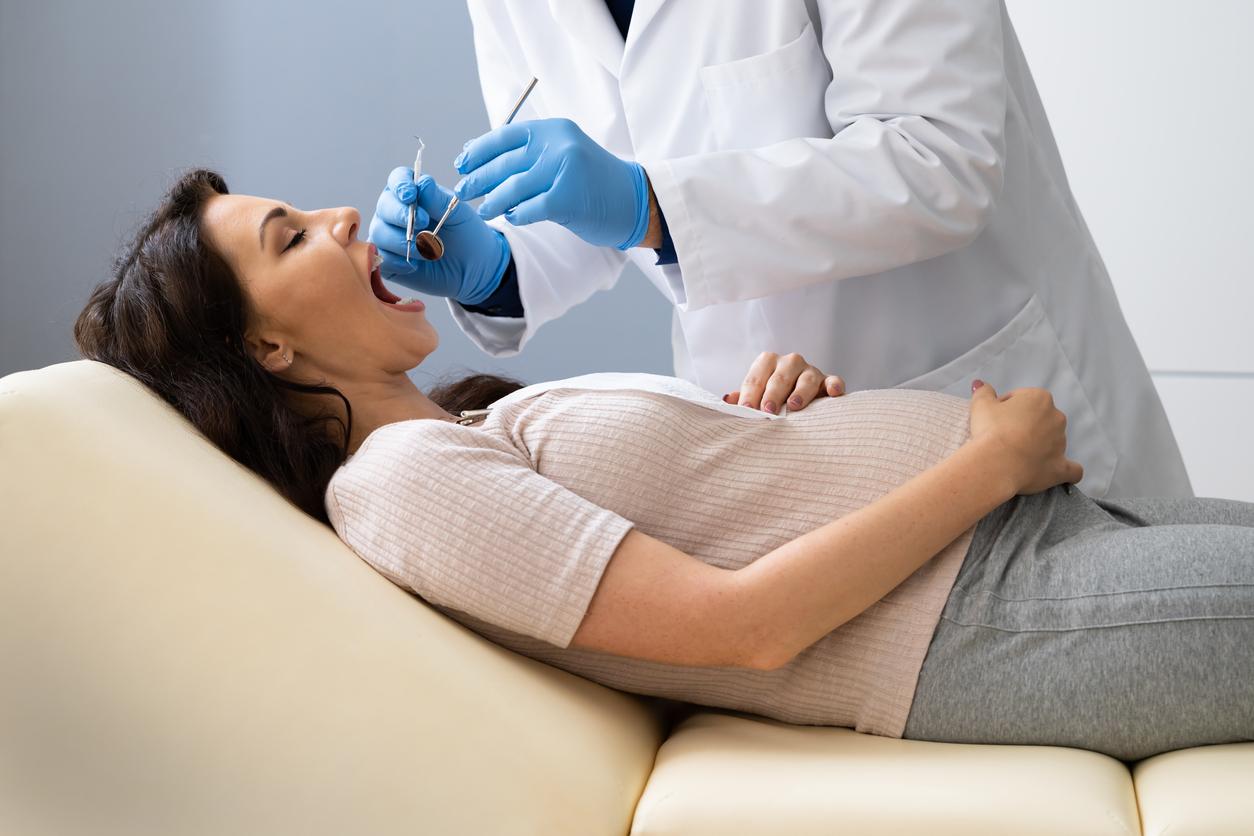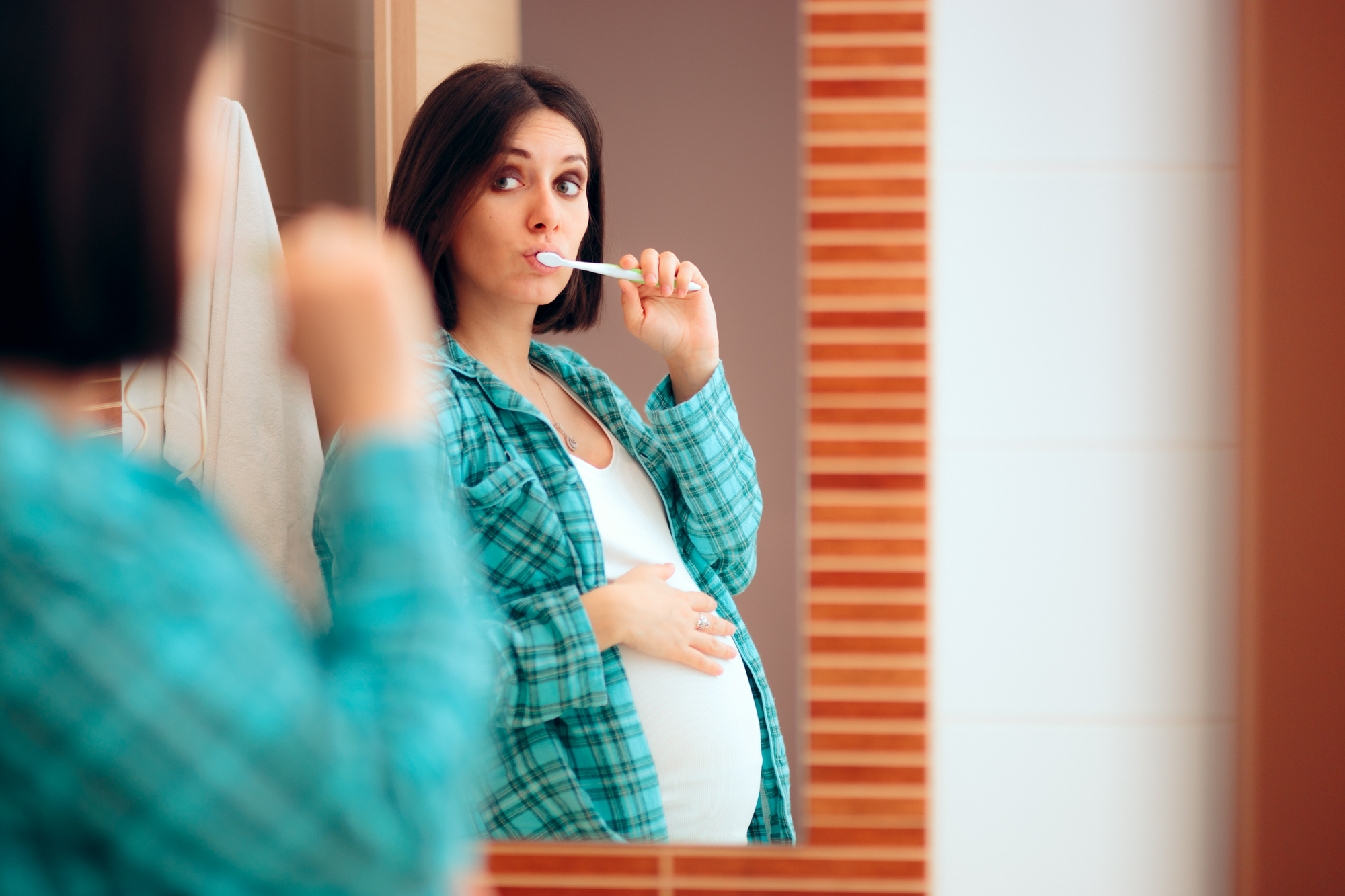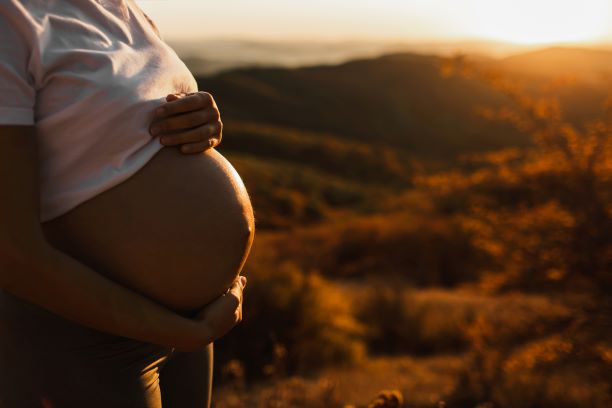Last Updated on: 23rd July 2024, 11:44 am
Cavities and pregnancy
During pregnancy, women experience many hormonal and physical changes that negatively impact a woman’s oral health. The most common is the risk of gum disease and tooth decay.
Tooth decay during pregnancy generally occurs more frequently than in other periods of a woman’s life. According to the Centers for Disease Control and Prevention (CDC), between 60-70% of pregnant women affirm that their oral health has been affected by pregnancy.

This is because there is a change in the bacterial flora of the mouth during pregnancy that, together with other factors and greater consumption of carbohydrates and sweets in particular by pregnant women, increases the risk of tooth decay.
Therefore, during this period, specific care must be taken to preserve oral health, including careful oral hygiene and proper nutrition.
Causes of cavities in pregnancy
According to the American Dental Association (ADA), there are various causes that can favor the appearance of cavities, such as the change in the composition of saliva, which becomes more acidic, favoring the decomposition of food remains and therefore the appearance of cavities Something that is very common during the last trimester and in the breastfeeding months.
The hormonal changes of pregnancy also create a favorable environment for cavities and gingivitis to appear since the blood supply to the tissues of the mouth increases, making them more sensitive to external agents.

Another cause is stomach acids when there is gastric reflux and vomiting, which when in contact with the teeth cause demineralization that causes wear. In addition, if there is already the presence of cavities at the beginning of pregnancy, this demineralization will favor a more rapid advance of cavities.
And finally, changes in diet and meals can have a lot to do with it. Remember that during pregnancy, the frequency of meals tends to increase. Therefore, you should avoid the intake of foods and beverages rich in sugar and carbohydrates.
Treatment of cavities during pregnancy
Not only can cavities during pregnancy be treated, it needs to be done. Most of the time, due to the risk of a complication of the disease. It should be noted that the early detection of caries implies a non-invasive treatment for the patient. Therefore, it will not cause risk to either the mother or the baby.
The main concern derived from caries treatment during pregnancy is the risk of the effects of anesthesia on the baby. However, the local anesthesia used in most dental treatments has not reported adverse effects of any kind. Even so, anesthesia should be limited to emergency treatments.
If there is no dental pain, infection, or urgency, the second trimester is the most ideal to undergo any dental treatment, including fillings. At this time of pregnancy, there is no longer any problem in applying local anesthesia and the necessary products to restore the tooth. However, it is important that you inform the dentist in advance about your pregnancy.

On the other hand, treatments in the third trimester should be avoided since, as happens at the beginning, the end of pregnancy is once again a delicate period for the mother and the baby, mainly due to the discomfort of lying down in the same position for a long time and even to the stress that many people cause to go to the dentist. Therefore, if tooth decay is detected during this trimester, it will be the dentist who will assess whether to treat it at that time or wait until after delivery.
X-rays do not have a negative impact on a baby. Radiation is minimal and dental personnel put lead aprons and collars on patients to protect them. In any case, X-rays are usually done only in emergency consultations.
Preventing cavities during pregnancy
Experts recommend preventing cavities as the first form of treatment. Because you experienced the chances of tooth decay in pregnancy, special care should be taken with oral hygiene. In general, future moms should brush their teeth at least twice a day, using fluoride toothpaste and supplementing cleaning with flossing. In the case of nausea and vomiting, it is vitally important to increase hygiene since stomach acids can damage the enamel of the teeth and make them more vulnerable to bacterial attack.

In addition, it is essential to maintain a balanced diet. Eat a healthy diet that includes foods rich in calcium, vitamins A, C, D, and lean protein. It will keep your teeth strong and decay-free and help build strong teeth and bones for your baby. Some women even develop gestational diabetes during pregnancy if they are not careful about the food they eat. Stay away from foods that contain excessive amounts of sugar like candy and soda. Sugar is especially bad for you and is one of the main causes of cavities. Controlling pregnancy cravings can be difficult, but remember that your baby is still developing and needs all the help she can get from you.
Finally, it is highly recommended to carry out a complete oral check-up at the time the pregnancy is known to detect possible problems early. In any case, it is advisable that this review be done before the third trimester. As the pregnancy progresses, it may be more uncomfortable to be in the dentist’s chair for a long time.
Likewise, if you are prone to cavities or have a previous history of periodontal diseases, you should pay more attention to your check-ups, both before, during, and after pregnancy.
Contact Us: Cavities And Pregnancy
At Channel Islands Family Dental, we offer dental care for pregnant women. Pregnancy is a time of fulfillment and happiness. Our dentists in Oxnard, Ventura, Santa Paula, New Bury Park and Port Hueneme will accompany you with a special dental care program for your needs. Book your appointment now.



